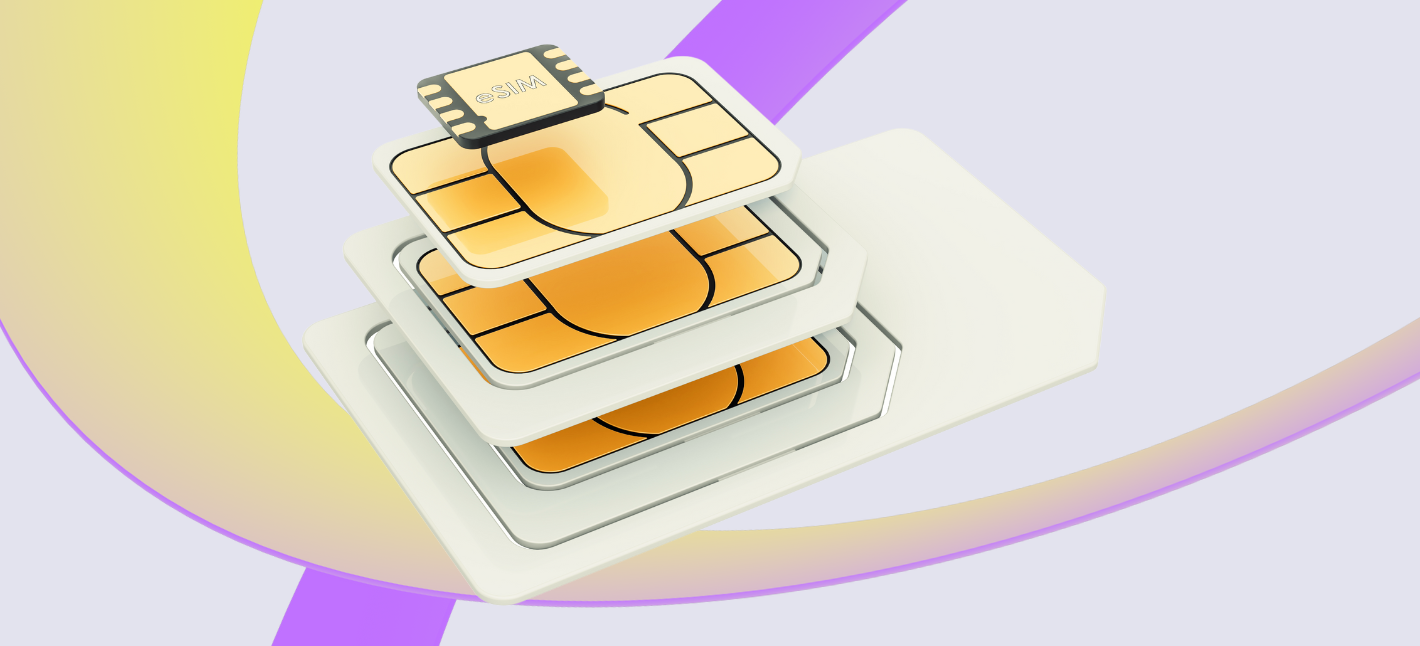Hologram Iot Sim Card The Evolution of SIM Cards IoT Devices
The position of SIM playing cards in IoT connectivity is becoming more and more very important as the world advances towards a more interconnected landscape. IoT, or the Internet of Things, refers to the huge community of devices that communicate with one another and change information to enhance functionality and effectivity. In this ecosystem, SIM playing cards serve as an integral part, facilitating wireless communication between devices.
SIM playing cards provide the necessary identification that permits IoT gadgets to connect to mobile networks. The unique identification numbers programmed into these SIM playing cards allow devices to authenticate their connections with service suppliers. This is crucial because it helps stop unauthorized access and ensures that data transfers happen securely.
Free Iot Sim Card The Evolution of SIM Cards IoT Devices
Different forms of SIM playing cards can be found for IoT applications. Traditional SIM cards, embedded SIMs (eSIM), and detachable SIMs all serve completely different needs within the IoT area. Traditional SIM cards can be inserted into gadgets needing connectivity, while eSIMs are embedded directly into units and are more adaptable to modifications in service suppliers. The versatility of eSIM technology performs a major function in numerous IoT functions.

IoT units come in various shapes and sizes, from smart home appliances to industrial machinery. Each sort of gadget could have different connectivity wants depending on its purpose. SIM cards can provide varied data plans tailored for specific use cases, optimizing communication primarily based on bandwidth necessities, knowledge utilization, and different elements. This flexibility is instrumental in enhancing the general efficiency of an IoT ecosystem.
copyright Iot Sim Card IoT Data SIM Card
Another facet of the SIM card's position in IoT connectivity is the ability to track and handle devices remotely. Mobile community operators supply platforms that enable users to watch their IoT devices in real-time. This functionality is particularly important in industries corresponding to logistics and transportation, where knowing the exact location of property can result in better operational effectivity and cost savings.
As IoT devices proliferate, managing connectivity becomes more complicated. Here, the role of SIM playing cards extends to enabling centralized administration options that assist administer multiple devices simultaneously. This is particularly advantageous for enterprises working giant fleets of linked units, which may observe efficiency and connectivity extra effectively through a single administration interface.
Iot Machine To Machine Sim Card IoT SIMs
A primary concern in the Internet of Things is security. With tens of millions of devices connected to the web, guaranteeing the integrity and confidentiality of information is paramount. SIM playing cards contribute to this safety architecture by providing encryption capabilities that safeguard delicate data. The cryptographic keys embedded inside SIM cards assist secure communications between devices, making it difficult for unauthorized entities to intercept or manipulate information exchanges.
Moreover, the position of SIM playing cards is evolving as expertise develops. The introduction of Narrowband IoT (NB-IoT) and Long Range Wide Area Networks (LoRaWAN) has opened new avenues for connectivity, notably for low-power and long-range applications. SIM playing cards designed for these particular technologies allow gadgets to function efficiently over lengthy distances while consuming minimal power. This is especially related for remote monitoring and control techniques, the place changing batteries may be expensive and difficult.
While SIM cards have made strides in enhancing IoT connectivity, they also face challenges. For occasion, compatibility points come up when integrating numerous devices throughout different networks. The introduction of standards and regulations geared toward harmonizing IoT providers is an ongoing effort, but the pace of innovation usually outstrips these measures. Iot Data Sim Card. Adapting SIM playing cards to fulfill numerous requirements is important for ensuring a seamless expertise in the burgeoning IoT landscape.
Iot Sim Card Providers IoT SIM

The impact of 5G technology can additionally be reshaping how SIM playing cards operate inside IoT connectivity. With considerably improved speeds and decreased latency, 5G offers capabilities that redefine IoT applications, ranging from smart cities to autonomous vehicles. SIM cards designed particularly for 5G networks might be crucial in leveraging the full potential of those next-generation capabilities.
In various sectors, including agriculture, healthcare, and smart cities, the position of SIM playing cards becomes more and more crucial. In agriculture, as an example, sensors connected by way of SIM cards can monitor soil circumstances, enabling farmers to make knowledgeable choices helpful hints about irrigation and fertilization. Similarly, in healthcare, distant affected person monitoring gadgets utilize SIM playing cards to transmit important health information to healthcare suppliers, enhancing patient care.
The growing reliance on cloud services in IoT purposes typically necessitates robust knowledge switch options. SIM cards facilitate these connections, enabling gadgets to send and receive information from cloud platforms successfully. This functionality not solely enhances the performance of IoT options but also improves the power to research information for higher decision-making.
As connectivity evolves, the importance of SIM cards in maintaining a robust ecosystem cannot be overstated. Their position in figuring out, securing, and managing devices is central to ensuring seamless communication inside the IoT landscape. Whether it is via traditional SIM cards or newer technologies like eSIMs, their significance will only proceed to grow in an more and more linked world.
Free Iot Sim Card IoT SIMs Any Device Anywhere
The integration of artificial intelligence and machine studying into IoT solutions signifies yet another evolution in connectivity. SIM playing cards that can handle enhanced information processing capabilities will be important for the smart decision-making processes enabled by these technologies. Collectively, these advancements will lead to more clever systems able to adapting to changing situations autonomously.
In conclusion, the function of SIM playing cards in IoT connectivity is multifaceted and essential for the growth and sustainability of an interconnected world. By ensuring safe identification, facilitating remote administration, and adapting to new technologies, they play a critical half within the evolution of IoT functions across various sectors. As expertise advances, the significance of SIM cards will solely intensify, driving additional innovations and enhancements in connectivity strategies.

- SIM cards present a secure and distinctive identifier for IoT units, enabling trusted communication within networks.
- They facilitate seamless connectivity in various environments, from city areas to remote areas, enhancing the reliability of IoT applications.
- With the appearance of Embedded SIM (eSIM) expertise, IoT devices can swap carriers simply, improving network adaptability and decreasing downtime.
- SIM playing cards contribute to data encryption, guaranteeing that the data transmitted between units and networks stays safe against unauthorized entry.
- They allow over-the-air updates, permitting manufacturers to push firmware upgrades directly to IoT devices without physical entry.
- By integrating subscription administration, SIM playing cards help in sustaining and monitoring information plans, optimizing prices for businesses deploying massive IoT networks.
- SIM cards enhance device monitoring capabilities, making them crucial for logistics and asset administration in varied industries.
- They help multi-network connectivity, which enhances redundancy and reduces the risk of communication failures in important purposes.
- The role of SIM cards in network slicing permits for tailored connectivity solutions, ensuring that totally different IoT functions receive the suitable bandwidth and latency.
- SIM cards are pivotal in facilitating system provisioning and administration, streamlining the deployment process for large-scale IoT implementations.undefinedWhat is a SIM card and why is it essential for IoT?
Nb Iot Sim Card Why not use consumer SIMs IoT projects
A SIM card is a small chip that allows devices to connect with cell networks. In IoT, it provides secure communication and allows gadgets to send and receive knowledge, making them accessible and manageable remotely.
How do SIM cards enhance information security in IoT devices?
SIM playing cards utilize encryption and authentication protocols that guarantee secure communication between the gadget and the network, protecting towards unauthorized entry and data breaches.
What kinds of SIM cards are used in IoT applications?
Vodafone Iot Sim Card IoT SIM card Networking Protocols Devices
IoT purposes usually use specialized SIM cards, similar to M2M SIMs and eSIMs, designed for diverse environments and providing enhanced sturdiness, remote management, and flexibility in connectivity options.
Can IoT devices perform with out SIM cards?
M2m Iot Sim Card Global IoT SIM Card LOT 100
While it's possible for IoT units to connect by way of Wi-Fi or different wireless technologies, SIM cards are essential for mobile connectivity and are essential for devices that require intensive protection and roaming capabilities.
What is the difference between conventional SIMs and eSIMs in IoT?
Traditional SIM cards are physical devices inserted into devices, while eSIMs are embedded chips that can be programmed remotely, offering higher flexibility for device manufacturers in managing connectivity with out hardware modifications.
How do SIM cards contribute to value management in IoT deployments?
Sim Card For Iot SIM Starter Kit
SIM playing cards enable optimum connectivity published here solutions, permitting businesses to select acceptable data plans and handle data usage effectively, helping to minimize back operational costs associated with data transmission (Free Iot Sim Card).
What are the challenges associated with utilizing SIM cards in IoT?
Challenges can include managing a number of SIM cards for various gadgets, making certain compatibility, addressing network coverage points, and coping with potential fraud or safety vulnerabilities in mobile communication.
How can businesses select the proper SIM card for his or her IoT needs?
Iot Machine To Machine Sim Card IoT SIM Cards Available Anyone
Selecting the right SIM involves considering components like network coverage, knowledge utilization, device compatibility, long-term scalability, and security measures. Consulting with service providers may help align choices with operational wants.
What role do SIM cards play in future IoT innovations?
SIM playing cards are important for enabling next-generation IoT innovations, as they facilitate seamless connectivity, drive automation, and improve system administration capabilities, thus supporting extra advanced purposes like smart cities and distant healthcare.